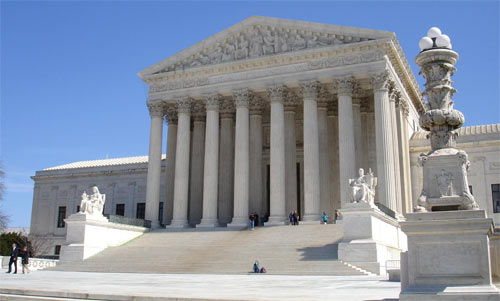Earlier today the Supreme Court came back with a 5-4 decision upholding most of the key provisions of the Protection and Affordable Care Act (PPACA) that was passed by Congress and signed into law in 2010.
The law has been an extremely contentious, but no matter where you stand on the issue, with today's announcement the only way the act won't go into effect is if it is repealed by Congress. Because of that the election seems to have just taken on added importance this year.
So with the law being upheld, what does the decision mean and how will it affect health care and the economy in the U.S.?

Quick Navigation
Pros And Cons Of The Law
So what are some reasons people are happy about the law being upheld?
- More people will have health coverage.
- Folks with pre-existing conditions can get coverage.
- People can stay on their parents coverage until age 26.
- More people can take advantage of care.
- Individual mandate is a loss of freedom forcing people to buy coverage.
- Increased cost to business, which could hamper recovery from recession.
- Higher costs for many people.
- Government bureaucracy will weaken health care.
Individual Health Care Coverage Mandate
One of the most controversial aspects of the health care law was the individual mandate. That part of the law required that individuals have some form of health insurance, either on their own or through an employer. If you don't have coverage, you pay a penalty. The court upheld the individual mandate, and people will soon be required to have insurance or pay the penalty.The court clarified that the the requirement is not a mandate, but a tax, and as such is constitutional and falls under the government's taxing authority.
So what is the penalty for no health care coverage? It will be whichever is greater of:
- (In 2014) 1 percent of a household's taxable income, or $95 per person in the household, up to three people.
- (After 2016) 2.5 percent of a household's taxable income, or $95 per person in the household, up to three people.
Upheld Provisions Of Obamacare
Most of the main provisions of the Affordable Care Act were left intact after the Supreme court made their ruling. Obamacare provisions that remain in effect:
- Pre-existing conditions: Insurers may not deny coverage based on pre-existing conditions, one of the key planks of the overall insurance industry reform outlined in the bill.
- Coverage up until 26: The ACA had a provision that required companies to offer coverage for the children of policyholders up until the age of 26.
- Medicare coverage gap closed: There is something called “donut hole” in Medicare Part D coverage. Basically after people have paid their deductible Medicare kicks in to cover 75% of the cost of meds. After a threshhold is reached the patient is 100% liable to pay the costs. After the donut hole is crossed, costs are 100% covered by Medicare again. The gap will gradually be eliminated so that it will be closed by 2020.
- Cadillac insurance plan tax: People with high end “Cadillac” insurance plans can expect a 40 percent excise tax beginning in 2018.
- Tax on indoor tanning: There is a 10% tax on indoor tanning that will now remain in effect.
Medicaid Provision Limited
The Affordable Care Act when it was passed had a provision that said families earning as much as 133 percent of the federal poverty line would be eligible for Medicaid. If states failed to comply with the expansion of Medicaid the government would be able to withhold all Medicaid funds.
The court allowed for the expansion of Medicaid, but denied the government's ability to withhold all funds, but not the ability to withhold new funds. Because of this ruling the expansion of Medicaid is now thought to be optional for states.
Health Care Will Be A Major Election Issue This Year
While the ruling today was certainly a big win for Obama, and will have major ramifications for this country, the debate surrounding health care is far from over.
Already you're seeing how the election season will be shaping up, and I guarantee that the health care law, and the repeal thereof, will be one of the main issues people will be focusing on, right after the struggling economy.
What are your thoughts on the Supreme Court's decision today and what effect it will have?
What about limits on health reimbursement accounts? I am hearing conflicting things mainly regarding what expenses will be eligible in the future.
I am (obviously) no expert on Constitutional Law, but isn’t there something special that has to go on to make new federal taxes other than a Supreme Court ruling?